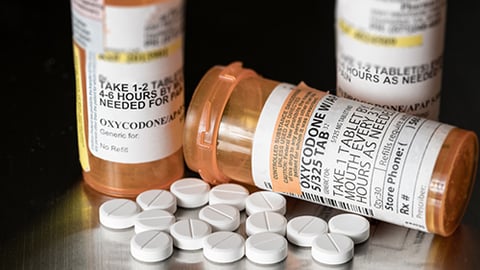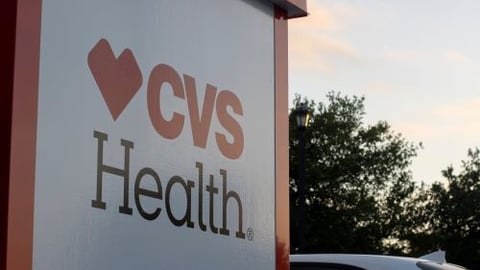U.S. Sues Rite Aid Over Opioid Prescription Misuse
The Justice Department revealed on March 13 that the United States filed a complaint in intervention in a whistleblower lawsuit brought under the False Claims Act (FCA) against Rite Aid Corp. and various subsidiaries alleging that the company knowingly filled unlawful prescriptions for controlled substances. In addition to alleging claims under the FCA, the government’s complaint also alleges violations of the Controlled Substances Act (CSA).
“The Justice Department is using every tool at our disposal to confront the opioid epidemic that is killing Americans and shattering communities across the country,” said Attorney General Merrick B. Garland. “That includes holding corporations like Rite Aid accountable for knowingly filling unlawful prescriptions for controlled substances.”
[Read more: “Narcan Approved for OTC Sales”]
The government’s complaint alleges that, from May 2014 through June 2019, Rite Aid knowingly filled at least hundreds of thousands of unlawful prescriptions for controlled substances that lacked a legitimate medical purpose, were not for a medically accepted indication or were not issued in the usual course of professional practice. These unlawful prescriptions included, for example, prescriptions for the dangerous and highly abused combination of drugs known as “the trinity,” prescriptions for excessive quantities of opioids such as oxycodone and fentanyl, and prescriptions issued by prescribers whom Rite Aid pharmacists had reportedly identified internally as writing illegitimate prescriptions.
The government alleges that Rite Aid pharmacists filled these prescriptions despite clear “red flags” that were indicative that the prescriptions were unlawful. The government further alleges that Rite Aid not only ignored substantial evidence from multiple sources that its stores were dispensing unlawful prescriptions, including from certain pharmacists, its distributor and its own internal data, but also compounded its failure to act by intentionally deleting internal notes about suspicious prescribers. By knowingly filling unlawful prescriptions for controlled substances, the government alleges that Rite Aid violated the CSA and, where Rite Aid sought reimbursement from federal health care programs, also violated the FCA.
“According to our complaint, Rite Aid’s pharmacists repeatedly filled prescriptions for controlled substances with obvious red flags, and Rite Aid intentionally deleted internal notes about suspicious prescribers,” said Associate Attorney General Vanita Gupta.
Since this is a litigation matter, Rite Aid declined to comment.
Whistleblowers Andrew White, Mark Rosenberg and Ann Wegelin, who all previously worked for Rite Aid at various pharmacies, filed an action in October 2019 under the qui tam provisions of the FCA. Those provisions authorize private parties to sue on behalf of the United States for false claims and share in any recovery. The act permits the United States to intervene and take over the lawsuit, as it has done here in part.
Also in the news, a Kentucky physician was recently awarded $14 million in his lawsuit against CVS and Rite Aid of Kentucky for wrongly attributing drug orders to him.
As reported by the Lexington Herald Leader, jurors in James Chaney’s lawsuit found that the two pharmacy companies “knowingly or recklessly” reported that he wrote prescriptions he really hadn’t. This put Chaney in a false light as someone who had written a large amount of prescriptions for opioid painkillers, jurors ruled.
Chaney was charged in 2014 with prescribing drugs illegally and ultimately sentenced to 30 months in federal prison. The jury awarded Chaney $10 million for past, present and future mental anguish; $2.5 million for lost wages; and $1.5 million for impairment to his ability to earn money, according to the verdict form.
A spokesman for CVS said the company respectfully disagrees with the verdict and is reviewing options, including whether to appeal.
Philadelphia-based Rite Aid operates 2,300-plus retail pharmacy locations across 17 states. The company is No. 21 on The PG 100, Progressive Grocer’s 2022 list of the top food and consumables retailers in North America. With its CVS Pharmacy subsidiary operating almost 10,000 locations nationwide, Woonsocket, R.I.-based CVS Health is No. 7 on The PG 100.






